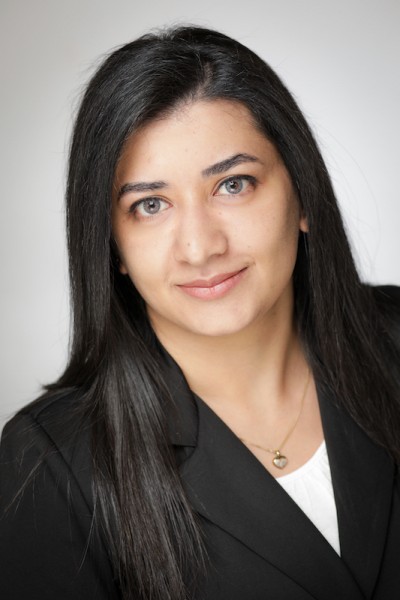Read more:
Place of the fight for human rights: Escape route from Syria to Germany, later first reception facility in Germany (East Germany)
| Area | Type | From | To | Location |
|---|---|---|---|---|
| Training | 2008 | Damaskus | ||
| Training | 2009 | 2011 | Damaskus | |
| Training | 2008 | 2014 | Damaskus | |
| Profession, Activities | 2008 | 2015 | Damaskus | |
| Training | 2018 | Bochum |
Literature (literature, films, websites etc.)
https://www.yumpu.com/de/document/read/61891576/here-das-magazin-von-gefluchteten-fur-bochum-ausgabe-5
(Seite 12-14)
https://www.yumpu.com/de/document/read/59893194/here-das-magazin-von-gefluchteten-fur-bochum-sonderausgabe-lieswat
(Seite 18-19)
- Personality
- Family environment
- Charity (NGOs)

THE STORY
Nour Abdal Khalek, Bochum
“Everywhere you can die: at sea, in the mountains, on the back of a truck. I knew that, but I had no choice.”
Nour Abdal Khalek grew up in Damascus (Syria). The war broke out in Syria while she was still studying, by this time she was already the mother of two young children. While the situation in Syria and increasingly in the capital Damascus was more and more uncertain due to the war, her situation worsened even more after the separation and divorce from her husband. Although she always received support from her parents and especially from her father, the situation for a single mother in Syria was so severe that she decided to flee to Europe in 2015. She wanted to give her children a life in safety. “Here in Syria we speak of the death route (literally translated: the death journey) when fugitives set off for Europe,” Nour writes in an article in the fugitive magazine Here-in Bochum.
“You can die anywhere: at sea, in the mountains, on the back of a truck. I knew that, but I had no choice.” Due to a financial embargo, air travel was not possible. Nour therefore drove to Lebanon by car with her then five and seven-year-old children to fly from there to Izmir in Turkey. From Izmir she wanted to reach Greece by boat. Only the fifth attempt was successful. One boat sank, the engine of another boat broke down and further attempts were thwarted by the Turkish police. She had to hide in the mountains with her children for several days without food. From Greece the arduous journey continued by bus and days of walking. “I did not sleep for the nights because I was afraid for my children.” In all, their journey to Germany took seventeen days. In Austria, she was given a friendly welcome for the first time and for the first time she and her children did not feel any fear of the police.
In Germany, she was first sent to an admission centre in East Germany
She lived in East Germany for a total of five months, a time she does not like to talk about. She describes her experiences in another article in the magazine Here-in Bochum. Her first months in Germany were marked by rejection and hate. “On my 42nd day in the East, my bright image of Germany began to crumble.” On this day she experienced the reluctance of the authorities to communicate with the fugitives in English. But how could people who had only been in Germany for a month communicate in German? Nour, as a studied English specialist, had the will and also all the prerequisites to learn a foreign language quickly, but this was impossible. What was it like for the refugees from poorer and more rural regions? Here Nour tried to help by translation.
Nour experienced institutional racism, especially from the social worker assigned to her, who forced Nour to move her children to a remote village without infrastructure or adequate bus connections. She forced Nour to sign a form, otherwise she would have to sleep on the street with her children in November. “Can you believe that in Germany you have to sign things under threat? I came here to live in a democracy (…)”. Nour experienced rejection and hostility from the villagers. “The villagers were afraid of us strangers in their hearts.”
Due to a spinal cord tumor that had been operated on in Syria, she was unable to walk or cycle long distances, so she was helpless and alone in the village without a supermarket, which was 12 kilometers away from the next town, with her two little children. She was afraid to leave the house in the dark and fell increasingly into depression.
The small family also experienced xenophobic attacks, such as when young men in their car drove at high speed towards the children playing in the street and finally ran so close to them that a little girl fell and broke her arm. On another occasion, firecrackers were thrown into the home’s mailbox. Imagine what this does to people traumatised by war. Finally, Nour decided to continue fighting for her children, she went to the director of the home and told him about her situation and asked for help. But even after this conversation she received no support.
Finally she was informed that she could pick up her residence permit. When Nour realized that this permit had already been issued three months ago and that the document had been withheld from her, she felt anger above all. Up to this point she had still not received the first notice from the Federal Office for Migration and Refugees (BAMF) – she still hasn’t got it! “While all other children from the home were already going to school or kindergarten, we had to stay at home! My children suffered from boredom. They felt the rejection of the other children because they were not learning German and could not participate in any other way.” When she got her residence permit, she moved directly to Bochum. Here she feels comfortable and safe. She doesn’t want to talk about her experiences, because it still takes her a lot. Her children process the difficult time with the help of therapists. She also notices many prejudices against refugees among the people in Bochum, so the people here think that Syrians are shy of work and do not want to learn German. She hopes that her work for the refugee magazine will help to reduce these prejudices. In order to protect her children – also against the threats of her ex-husband living in Syria – Nour does not want to give any further details about her children or publish any photos of them.
Author: Daniela Collette






